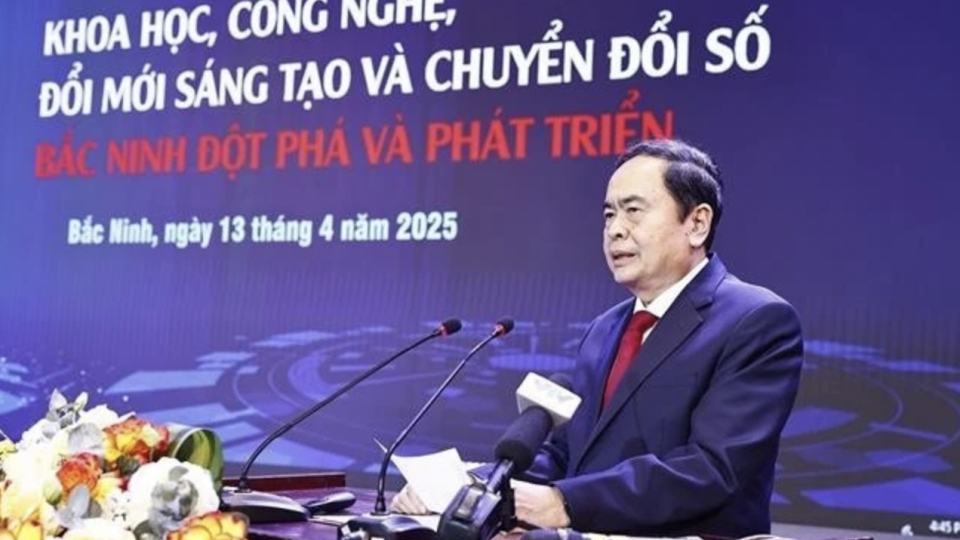Vietnam moves forward with smart, secure, and sustainable digital infrastructure
As strategic technologies such as artificial intelligence (AI), the Internet of Things (IoT), blockchain, semiconductors, and next-generation networks like 5G and 6G are rapidly expanding, Vietnam has identified strong digital infrastructure as a prerequisite for mastering and effectively deploying these innovations.
This priority is clearly outlined in the Strategy for Digital Infrastructure Development to 2025, with a vision to 2030, as well as in the Politburo's Resolution No. 57/NQ-TW on breakthroughs in science and technology, innovation, and national digital transformation.
Accelerating digital transformation across sectors
A modern, intelligent, and secure digital platform is essential to drive digital transformation in all key socio-economic fields, Vu Hoang Lien, Chairman of the Vietnam Internet Association, said at the Vietnam Digital Infrastructure Development Forum 2025 held in Hanoi on September 30.
The forum, organised for the first time under the theme “Robust Digital Infrastructure for Mastering Strategic Technologies,” connected policymakers, businesses, and experts at home and abroad to promote the development of modern digital infrastructure as a platform for digital transformation in finance, industry, transport, energy, healthcare, education, agriculture, and public services.
Statistics released at the forum underscored Vietnam’s remarkable progress in digital infrastructure development. According to DataReportal, Vietnam had more than 80 million internet users as of 2025. Figures from APNIC Lab show that IPv6 deployment has surpassed 60%, ranking Vietnam second in ASEAN and ninth worldwide, with preparations underway for an IPv6-only phase from 2026–2030.
Vietnam’s cloud computing market reached nearly VND19.37 trillion (US$775 million) in 2024, projected to rise to US$1.24 billion in 2025 and double by 2029. Data centre capacity is also expanding rapidly, from 45 MW in 2024 to an estimated 525 MW in 2025 and is forecast to reach nearly 1,000 MW by 2030.
Lien noted that while these figures highlight Vietnam’s rapid progress, challenges remain, including limited investment resources, green standards, cybersecurity and data sovereignty requirements, and the need for stronger research and development capacity.
Prof. Ho Tu Bao of the Vietnam Institute for Advanced Study in Mathematics (VIASM) and member of the National Advisory Council on Science, Technology, Innovation and Digital Transformation, said building strong digital infrastructure requires a coordinated approach across three pillars: technical infrastructure, data infrastructure, and application infrastructure.
He also emphasised the need for a transparent legal framework to avoid overlaps and barriers, clear regulations on data architecture towards a national digital architecture, and resilience against natural disasters and cyberattacks, along with a highly skilled workforce capable of mastering technologies.
Data – new means of production in the digital age
Nguyen Thi Ngoc Dung, Chief of Office of the National Data Association, stressed that data has become not only the “new oil” but also the core means of production for every sector. The association is focusing on standardising national data architecture, developing Vietnamese-owned technology platforms, and building a high-quality workforce through the launch of the Global Data Experts Network.
At the forum, CMC Telecom introduced two flagship services. CMC Cloud, a Make in Vietnam platform designed and operated by Vietnamese engineers, stands out with its vision of digital sovereignty, safeguarding national data, reducing reliance on foreign infrastructure, and offering flexibility and optimisation for domestic businesses. Meanwhile, CMC Comprehensive Security Platform, an AI-powered cloud-based solution, provides real-time threat detection, enabling businesses to shift from “passive defence” to “active defence”.




